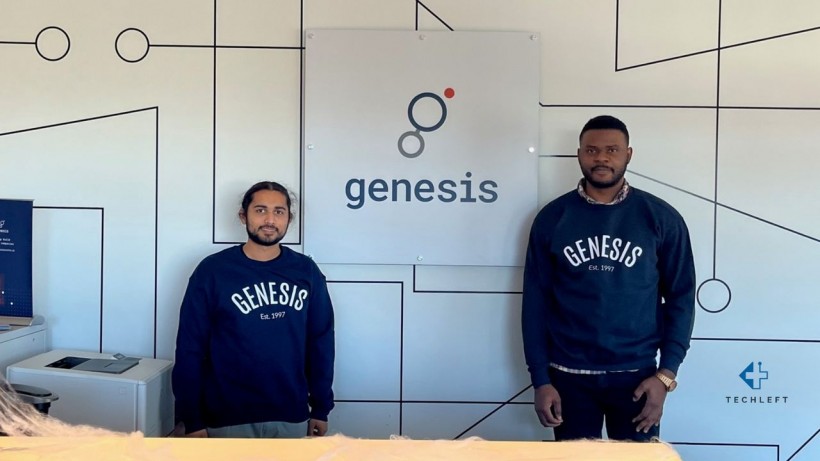A St. John’s company is aiming to use a combination of artificial intelligence and wearable devices to help seniors stay in their homes longer.
Techleft is the creation of Viral Galaiya and Kenneth Nwankwo — a pair of Memorial University students who met at startup hub Genesis. The duo are building the prototype of a system to track seniors’ movements and vital signs via wearables, with software then assessing their overall wellbeing, what types of care they might need and potential risk factors for incidents like falls.
Galaiya, Techleft’s CTO, said in an interview Monday that he and CEO Nwankwo expect to finish their minimum viable product this summer.
“When there is a possibility of a disconnect, often a location disconnect, between an aging adult and their children … most times, (children) feel like the aging adult will not be able to live alone in their own home, so they tend to move them to retirement homes.
“We’re trying to use our technology to help them live in their own home, and help their families rest assured that they are living well.”
Galaiya and Nwankwo are both immigrants to Canada. Nwankwo originally hails from Nigeria, where he worked as an engineer for the energy sector, and where multi-generational living arrangements are common.
When he arrived in St. John’s and took a job working in a retirement home to complement his studies, he was surprised at how many seniors were not aging with their families, but instead in assisted living settings where staff were often stretched thin. With Techleft, Nwankwo proposes to reduce the strain on care homes and improve seniors’ quality of life by keeping them out of the healthcare system for longer, as well as caring for them better once they do require more support.
"When I'm working with a senior on in-home care, the senior can actually say what they want," said Nwankwo. "So they have a sort of freedom when they are at home ... But then for the seniors in long-term care homes, it's more the calendar for the company that they have to follow.
"We want to make life better for seniors living in a smaller setting of home -- not necessarily their own home, but a smaller setting of home that can integrate more into the community where they have always lived their life."
The technology has three components: the wearable, a second device that tracks whether a person is taking their medication, and a central beacon that tracks the location of the wearable.
Galaiya and Nwankwo plan to use dedicated wearables, rather than smartwatches, because while the latter can monitor simple metrics like heartrate, they lack more sophisticated sensors. Techleft’s AI will combine data from the wearable over time with its record of a person’s movements to assess their wellbeing, as well as their risk of suffering an illness or injury.
Over time, Galaiya said the AI will likely even be able to make suggestions, such as changing the layout of a care home, to improve patients’ comfort levels. Other, similar systems exist, but Techleft is notable for its emphasis on sophisticated predictive analysis, rather than passive monitoring, said the CTO.
“The main thing is that current smart watches are not capable of telling, for example, stress levels,” said Galaiya. “There are various methods to do it, but a wrist-based wearable device limits a lot of applications, I think we might move the device closer to the body, where we can identify more ailments and relatively more problems.”
“There are wearable devices which have fall detection — although there’s not that many stress or strain detection availabilities — but the problem currently is there’s nothing that’s holistic, which is essential to long-term care living.”










